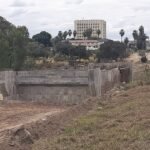By Beverly Bizeki
Community Based Organisations (CBOs) in Masvingo Province have called upon responsible authorities to provide flexible conditions for local authority and national budget consultations to ensure citizen participation in Public Finance Management value chain processes.
Speaking during a training workshop hosted by Zimbabwe Coalition on Debt and Development (ZIMCODD) in partnership with TellZim News in Masvingo recently, CBOs raised concerns over the way budget consultations were being conducted, which they said restricted citizen participation.
An attendee at the meeting, Sungano Zvarebganashe said the meetings were poorly attended and this was due to limiting conditions set for the meetings.
“Masvingo Province has seven districts but parliament had only set aside two meetings for the province combining people from rural and urban areas. Most people cannot travel to the set venues due to long distances, only those close to the venues will be able to attend. Some folks in the rural areas are not aware that such processes exist yet they are key stakeholders in budget formulations. “Responsible authorities must work on providing room for people to attend and submit their views in terms of the budget consultations,” said Zvarebganashe.
Another attendee, Purazeni Jakata said there was need for both government and parliament to be sensitive when selecting timelines for consultations, which he said contributed to apathy in people’s participation in budget processes.
“Local authority budget consultations in Masvingo are clashing with the Agricultural Show dates and a communication has been made to council to provide dates whereby more people can attend to no avail. This is one of the reasons why these meetings are poorly attended. Again, almost 97 percent of people’s inputs are not reflected in the budget which is why people tend to shun participating in budget consultations as it has become just a formality,” said Jakata.
Attendees also called upon local authorities to improve transparency by providing post budget formulation reviews to ensure that residents’ views are taken into consideration.
“People usually complain about local authorities’ pushing their own agendas at the expense of the ratepayers. We have since advocated for local authorities to have post budget formulation reviews before the budget is submitted to the minister but this has not happened, our wish is to have council bringing back reviews to the ratepayers even at ward level,” said one of the participants.
ZIMCODD facilitator Muchanyara Midzi said the training under its project, Strengthening Institutions and People Participation in Public Finance Management (SIPPP) aimed at equipping CBOs with budget analysis, monitoring and tracking skills for influencing the budget cycle for 2024.
“The training session is critical in strengthening the capacity of CBOs and Residents Associations to ensure their meaningful participation in Public Finance Management value chain and improve Public Finance Management outcomes in the health and education sectors,” Midzi said.
ZIMCODD Economic Analyst Zvikomborero Sibanda urged CBOs to employ the use of critical documents in budget monitoring and expenditure tracking.
“In doing budget monitoring and expenditure tracking, CBOs must make use of critical documents in order to be able to check for deviations or leakages against International Frameworks. There is need to gather and analyse critical documents for effective budget tracking ,” said Sibanda.
Zimbabwe’s Public Finance Management often comes under scrutiny, with the country’s corruption perception index placed at 149 out of 180. Corruption, closed procurement systems and delayed fund disbursements have been highlighted as key reasons for the country’s failure in meeting its development targets hence SIPPP’s objective on strengthening the institutions and people’s participation in a bid to ensure that there is transparency and accountability in the use of resources in the public health and education sectors.
Zimbabwe is a signatory to the Abuja Declaration which calls for the country to allocate 15 percent of its national budget towards public health and the Dakar Declaration which states that government should allocate at least 20 percent of its budget towards education but this has not been the case in Zimbabwe hence SIPPP’s objective on the two sectors.







